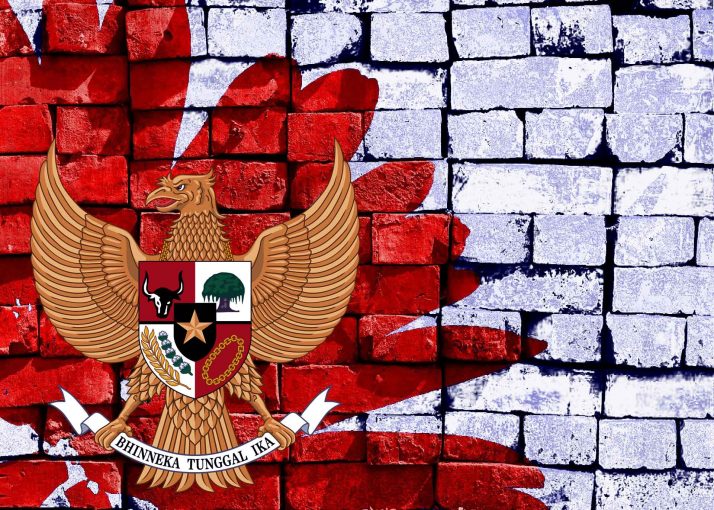

Reinterpreting Pancasila
Azis Anwar Fachrudin – 23 June 2017
In commemorating the anniversary of the Pancasila state ideology, which fell on June 1, what is needed is reflection on how to reinterpret it more inclusively.
Pancasila Week, held from May 29 until June 4, uses the taglines #SayaPancasila (I am Pancasila), #Saya Indonesia (I am Indonesia), #PancasilaReborn, etc. These taglines leave the impression Pancasila is being used as a political jargon against a perceived threat.
Read in today’s political situation, as already apparent in several public talks, the campaign seems to be directed against the Islamist threat, which many perceive as increasingly endangering the national ideology following the highly polarizing Jakarta gubernatorial election. A clear indication was the government’s announced plan to disband Hizbut Tahrir Indonesia on the grounds that its ideology contravenes Pancasila.
However, using Pancasila as an instrument to curb, disband—gebuk (clobber) certain groups, as President Joko “Jokowi” Widodo said, using the word Soeharto infamously used—is prone to make the government fall lockstep with the New Order. More reminiscent of the regime was that Jokowi also used the word “clobber” against the defunct Indonesian Communist Party (PKI)—“in case it emerges again,” he said.
It’s good to use Pancasila to convey the message that Islamism (in the sense of replacing the state’s philosophical foundation with Islam as a political ideology) has no place in Indonesia. But let’s be careful of the side effect of using Pancasila as political jargon while being uncritical of its history.
Two points are important here: Pancasila in relation to Marxism/communism and the role of the first principle (Belief in God) in Indonesia’s legal rulings.
As stated in the 1985 law on mass organizations, the New Order ruled that communism/Marxism-Leninism contravened Pancasila. Paramilitary youth organization Pemuda Pancasila is still active and likes raiding events perceived as promoting communism. Ironically, the penggali (digger) of Pancasila, first president Sukarno, embraced a Marxist-leaning political view.
Sukarno’s writings were clearly inspired but critical of Marxist thoughts, arguing that some Marxist teachings must be reviewed and adjusted into the Indonesian context. Thus he coined “Marhaenism”. Marhaen was reportedly a farmer whom he met in West Java, and Sukarno said farmers were more relevant in a class struggle of agricultural countries like Indonesia, compared to factory workers.
One of Sukarno’s famed political concepts was Nasakom, short for nationalist, religious and communist, based on a piece he wrote in 1926, long before independence, titled Nasionalisme, Islamisme, dan Marxisme. At the time, Islamism referred to the Pan-Islamist movement, the ideologues of which have inspired the founder of Muhammadiyah, among Indonesia’s largest Islamic organizations.
In his famous speech of June 1, 1945, in which he introduced Pancsila, he said the five principles could be “squeezed” into three: belief in God, “socio-nationalism” for the principles of humanity and unity, and “socio-democracy” for the principles on consensus and social justice, which leans to socialism.
So, for Sukarno, Marxism to a certain degree inspired the formulation of Pancasila. For Soeharto, Marxism contradicts Pancasila. If President Jokowi thinks communism deserves to be clobbered because it is against Pancasila, the Pancasila the President is referring to is the one molded under Soeharto. This is not good for our democracy; any “dissenter” of his Pancasila interpretation was crushed or “clobbered”.
Meanwhile, the “Belief in God” principle was used as a basis for Sukarno to issue the 1965 decree on religious defamation, which later became the Blasphemy Law. Besides, as stated explicitly in the decree’s elucidation, aliran kepercayaan (indigenous religions) must be supervised and educated in the direction of Belief in God.
So while claimed to be dug from Indonesia’s local wisdom, the interpretation of Pancasila did not accommodate indigenous beliefs. If the first principle of “Belief in God” means the state only recognizes monotheism, unsurprisingly during the New Order, Hindus (seen as polytheist) and Buddhist (who basically have no concept of God) had to invent a parallel term for a God in order to comply with the first principle.
More importantly, looking back at the 2009-2010 judicial review of the Blasphemy Law, the most important argument of the Constitutional Court to uphold the law was that, apart from maintaining public order, religious freedom in the Indonesian context has a specific limitation, namely “religious values”.
The term “religious values”, which limits religious freedom, is not mentioned in the International Covenant of Civil and Political Rights, ratified by Indonesia. However it is mentioned in the Constitution because all laws must not deviate from Pancasila as the nation’s “philosophische grondslag” and as the “source of sources of all Indonesian laws”, in which religion is an integral part of nation building.
Therefore, the limit on religious freedom, which discourages minority faiths—including indigenous faiths—has become the main obstacle for proponent of the annulment of the Blasphemy Law.
If the ‘Pancasila Reborn’ political project is intended to solve problems caused by the use of the Blasphemy Law by Islamists, while it is Pancasila itself that becomes the foundation of the law, isn’t this a paradox?
Also, while affirming Pancasila, those committed to human rights need a “Pancasila Reinterpreted” project to answer an important question: Can Pancasila be more inclusive toward human rights and religious freedom?
_________
Azis Anwar Fachrudin is a staff member at CRCS, UGM. This article originally appeared at the Jakarta Post, June 9, 2017.
